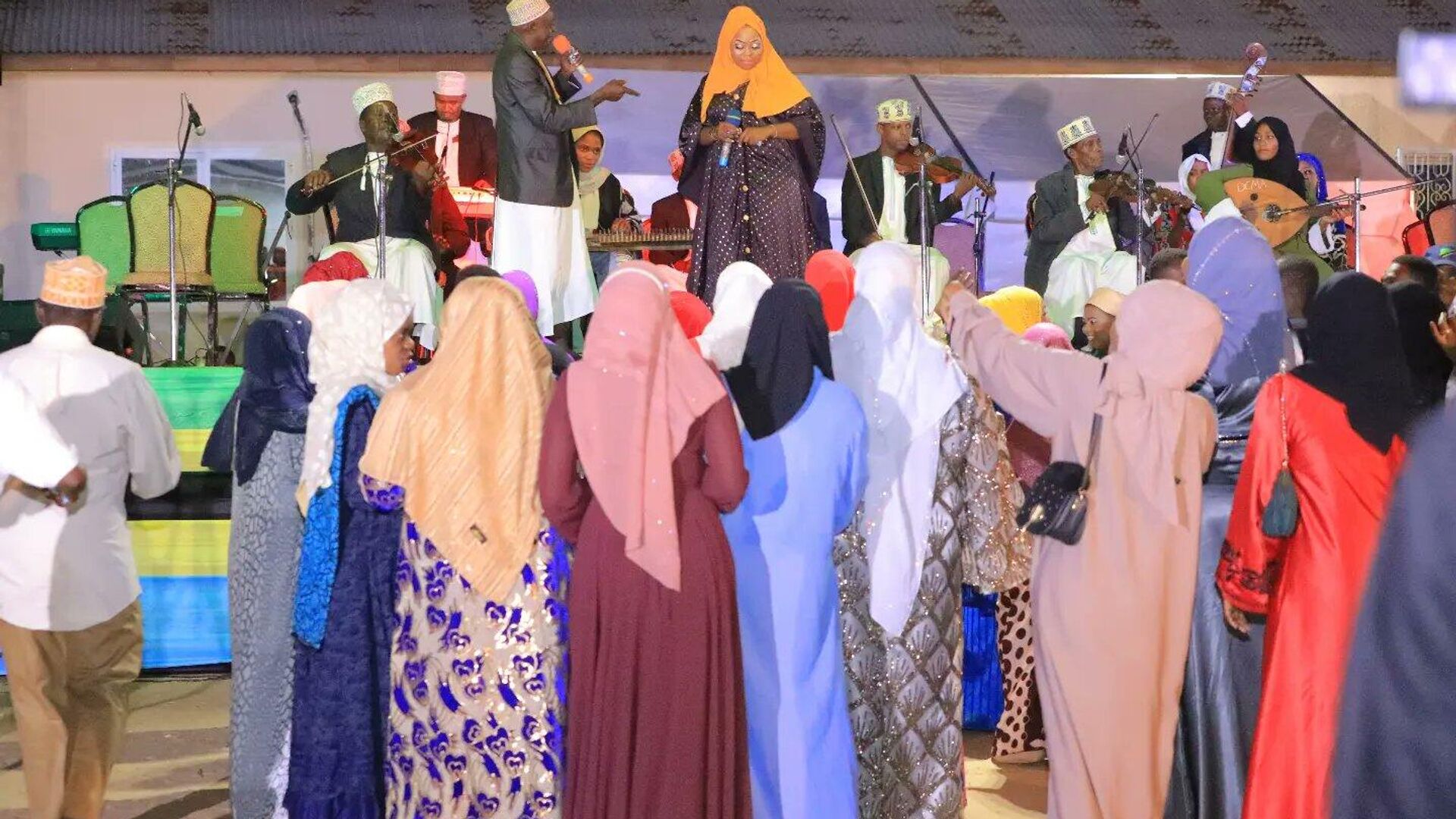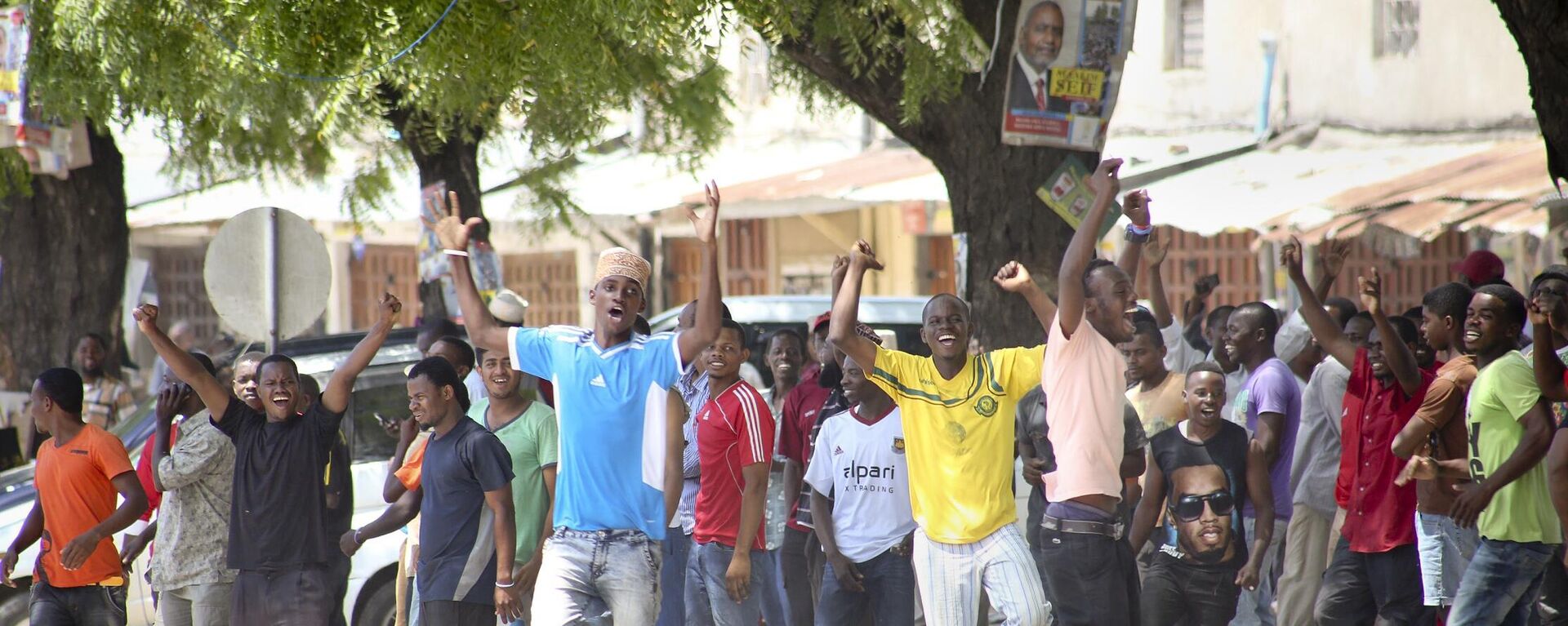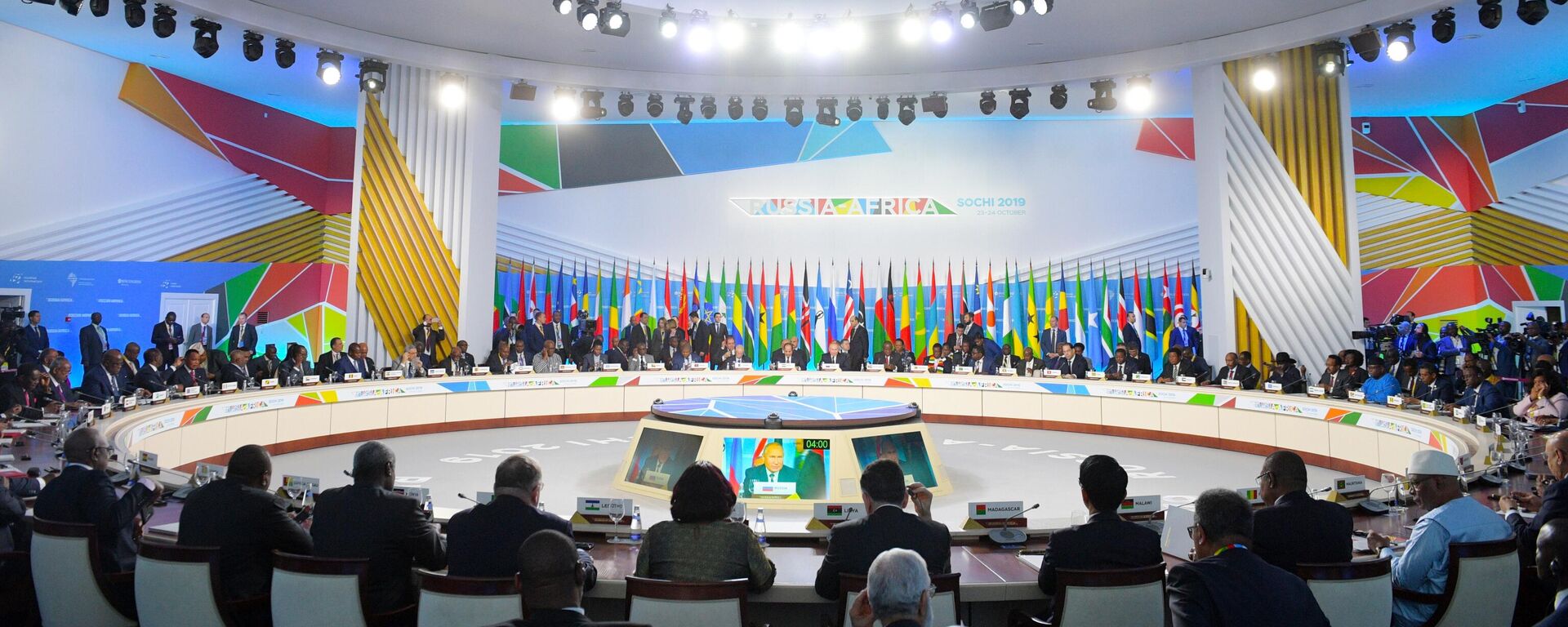https://en.sputniknews.africa/20230711/symbol-of-freedom-and-self-reliance-language-expert-on-kiswahilis-value-for-east-africa-1060469062.html
'Symbol of Freedom and Self-Reliance': Language Expert on Kiswahili's Value for East Africa
'Symbol of Freedom and Self-Reliance': Language Expert on Kiswahili's Value for East Africa
Sputnik Africa
Africa celebrated Kiswahili Language Day on July 7. The most widely-spoken language on the continent, Kiswahili, or Swahili is a Bantu language spoken by over... 11.07.2023, Sputnik Africa
2023-07-11T15:36+0200
2023-07-11T15:36+0200
2023-07-16T18:53+0200
kiswahili (swahili)
language
east africa
opinion
africa insight
russia
tanzania
culture
https://cdn1.img.sputniknews.africa/img/07e7/07/0b/1060471724_0:75:1440:885_1920x0_80_0_0_4ef129dc1a663bbb31ce3d6ff3c4513f.jpg
In honor of the Kiswahili Language Day, Sputnik Africa sat down with Mayya Nikolskaya, a Swahili teacher at Russia's MGIMO University, to reflect on the language's role in history and its future.Nikolskaya just returned from Tanzania's Zanzibar where the day was observed in a big way.According to Nikolskaya, festivities on this scale prove that Swahili connects people "from all walks of life, from all social strata."Elaborating on this idea, the expert noted that Swahili has managed to emerge as the lingua franca of the region as it has come to epitomize the "freedom and self-reliance" of the population, especially during the national liberation movement.The Africanist added that even though many East African national leaders were educated in the UK, for example, when they returned they still advanced Swahili as a unifying tool.The expert recalled that the Soviet Union assisted in building African states after independence and noted that Russia has undertaken a lot of efforts to promote and study Swahili to know the culture of East Africa.The expert added that Russia has a very strong school of African studies and African languages, and unlike Western textbooks, Russian manuals do not omit the proper structure, grammar, or vocabulary.Moreover, Nikolskaya underlined, there are several high-level Swahili speakers at the Russian embassy in Tanzania, which is "truly unprecedented."The expert also pointed out the closeness of the cultures of Russia and Swahili-speaking countries. Thus, there is a term in Swahili called "utu," which implies humanity, showing kindness, and treating your neighbor well.Replying to Sputnik Africa's question about the prospects of Swahili development in Russia, Nikolskaya said that with the growing interest in Russia in the continent, which is accompanied by the Russia-Africa summit, interest in this African language will expand.For its part, regarding the future of Kiswahili in Africa, the researcher noted that it will depend on the actions of political leaders, even though Kiswahili is "obviously going to remain a lingua franca."In late May, Alexey Maslov, the director of the Institute of Asian and African Studies, said that from the new academic year in 2023, four schools in Moscow will start teaching such African languages as Swahili and Amharic.Masters and graduate students of the institute have been involved in program development and teaching, he said.
https://en.sputniknews.africa/20230707/world-kiswahili-language-day-a-language-that-speaks-to-both-past--present-1060396938.html
https://en.sputniknews.africa/20230706/whats-in-second-russiaafrica-summit-program--why-does-it-matter-1060355323.html
east africa
russia
tanzania
Sputnik Africa
feedback@sputniknews.com
+74956456601
MIA „Rossiya Segodnya“
2023
Maxim Grishenkin
https://cdn1.img.sputniknews.africa/img/07e7/0a/17/1063018107_0:0:1104:1103_100x100_80_0_0_03090c85a11f5d2e8a19cf1d989443c9.jpg
Maxim Grishenkin
https://cdn1.img.sputniknews.africa/img/07e7/0a/17/1063018107_0:0:1104:1103_100x100_80_0_0_03090c85a11f5d2e8a19cf1d989443c9.jpg
News
en_EN
Sputnik Africa
feedback@sputniknews.com
+74956456601
MIA „Rossiya Segodnya“
Sputnik Africa
feedback@sputniknews.com
+74956456601
MIA „Rossiya Segodnya“
Maxim Grishenkin
https://cdn1.img.sputniknews.africa/img/07e7/0a/17/1063018107_0:0:1104:1103_100x100_80_0_0_03090c85a11f5d2e8a19cf1d989443c9.jpg
kiswahili (swahili), language, east africa, africa insight, russia, tanzania, culture
kiswahili (swahili), language, east africa, africa insight, russia, tanzania, culture
'Symbol of Freedom and Self-Reliance': Language Expert on Kiswahili's Value for East Africa
15:36 11.07.2023 (Updated: 18:53 16.07.2023) Longread
Africa celebrated Kiswahili Language Day on July 7. The most widely-spoken language on the continent, Kiswahili, or Swahili is a Bantu language spoken by over 200 million people in East Africa and other parts of the continent.
In honor of the Kiswahili Language Day, Sputnik Africa sat down with Mayya Nikolskaya, a Swahili teacher at Russia's MGIMO University, to reflect on the language's role in history and its future.
Nikolskaya just returned from Tanzania's Zanzibar where the day
was observed in a big way.
"We had something that resembles very much May 1 demonstration that we used to have in Russia. That is when you have a lot of people basically marching all the way for an hour or so from one place to another, accompanied by a music orchestra, with people singing and dancing and crying all the time," the linguist said.
According to Nikolskaya, festivities on this scale prove that Swahili connects people "from all walks of life, from all social strata."
Elaborating on this idea, the expert noted that Swahili has managed to emerge as the lingua franca of the region as it has come to epitomize the "freedom and self-reliance" of the population, especially during the national liberation movement.
"Kiswahili for so many people, was the symbol of freedom and the symbol of self-reliance, maybe, because that was a purely African language," Nikolskaya stressed. "It was a manifestation of all things African to people who resided in East Africa at the time."
The Africanist added that even though many East African national leaders were educated in the UK, for example, when they returned they still advanced Swahili as a unifying tool.
"That was like essentially a bridge between different ethnic groups, but also a unity between what later became to be different nations or different states on the African continent," Nikolskaya pointed out.
The expert recalled that the Soviet Union
assisted in building African states after independence and noted that Russia has undertaken a lot of efforts to promote and study Swahili to know the culture of East Africa.
According to the teacher, the recognition of these merits is the decision of the National Kiswahili Language Council to extend an invitation to the Kiswahili Festival for teachers in Russia for the first time.
The expert added that Russia has a very strong school of African studies and African languages, and unlike Western textbooks, Russian manuals do not omit the proper structure, grammar, or vocabulary.
Moreover, Nikolskaya underlined, there are several high-level Swahili speakers at the Russian embassy in Tanzania, which is "truly unprecedented."
"When you look at the other embassies at the diplomatic corps in Tanzania, as strange as it might sound, we are almost the only ones, the Russians are always the only ones who actually speak Kiswahili on a very good level," she noted. "First off, this is basic respect [...] You come to a country, you stay there for three, four or five years. What's the point of not learning the language?"
The expert also
pointed out the closeness of the cultures of Russia and Swahili-speaking countries.
Thus, there is a term in Swahili called "utu," which implies humanity, showing kindness, and treating your neighbor well.
"This is the same thing we have in Russia. Just [that] in Russia this tends to be a large part from the Christian Orthodox philosophy, but is still the same. The people do care about their community, and they try to be nice to people around them," Nikolskaya remarked.
Replying to Sputnik Africa's question about the prospects of Swahili development in Russia, Nikolskaya said that with the growing interest in Russia in the continent, which is accompanied by the Russia-Africa summit, interest in this African language will expand.
For its part, regarding the future of Kiswahili in Africa, the researcher noted that it will depend on the actions of political leaders, even though Kiswahili is "obviously going to remain a lingua franca."
"Whether it is going to be elevated to the next level is obviously going to depend, like I said, on the political leadership, because whether the people are ready to embrace Kiswahili, on the language policy, as an African language is part of their consciousness," Nikolskaya concluded.
In late May, Alexey Maslov, the director of the Institute of Asian and African Studies, said that from the new academic year in 2023, four schools in Moscow will start teaching such African languages as Swahili and Amharic.
Masters and graduate students of the institute have been involved in program development and teaching, he said.




